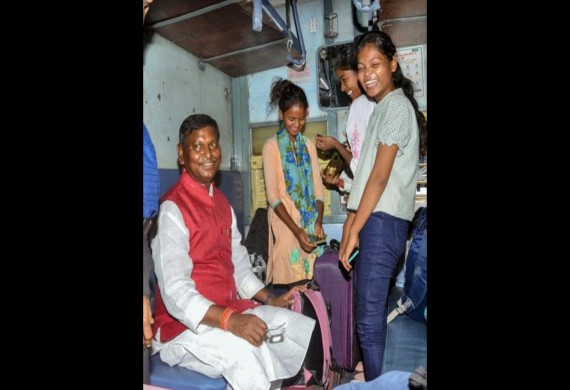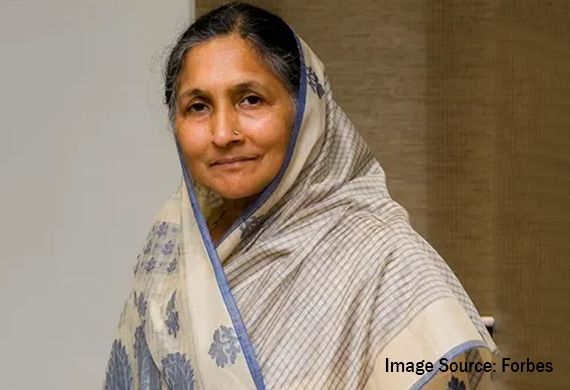
Tata Hires Over 1,900 J'khand Girls, with over 800 going to the TN Facility for Training
By: WE Staff | Wednesday, 28 September 2022
During a recent hiring drive organised by Tata Electronics Limited in conjunction with the union ministry for tribal affairs, approximately 1,900 tribal women from Jharkhand were given job offers at the company's plant in Tamil Nadu. On Tuesday, 820 of them boarded a train from Hatia railway station bound for Hosur in Tamil Nadu, which was flagged off by union tribal affairs minister Arjun Munda.
The Jharkhand girls who left on Tuesday were hired as entry-level operators at the Tata Electronics Private Limited greenfield plant in Tamil Nadu's Krishnagiri district. They are from the four tribally predominate Jharkhand districts of Khunti, Simdega, West Singhbhum (Chiabasa), and Saraikela-Kharsawan.
According to corporate officials, the chosen candidates would begin work following a 12-day special training programme at the plant.
The second batch will include the remaining applicants. On September 18–19, 2022, a two-day recruitment drive was reportedly held in Khunti, Saraikela, Chaibasa, and Simdega. More than 2,600 girls and young women from rural districts engaged in the recruitment campaign as a result of the initiative's positive reception, and 1,898 of them were chosen in just two days, according to Navaljit Kapoor, joint secretary for the ministry of tribal affairs.
The selected girls, who must be between the ages of 18 and 20, and who must have completed intermediate (10+2) as a minimum requirement, would receive a salary of Rs.15,000 for a year, along with other employee benefits as required by law, in addition to having the opportunity to pursue their graduation, according to officials. The income would be reduced by a small sum to cover costs for lodging, meals, and transportation.
In her speech to the chosen candidates at Hatia Railway Station, Lok Sabha member Munda, who represents Khunti, asked the young women to bear the torch for other females in the isolated regions of the tribally predominate provinces.
“You might belong to villages in remote areas and lack in exposure. But don’t forget that you belong to area that is land of struggles. You should not be concerned about adapting to new environment. I will son come to see you there. Today you are going to be trained. In years to come, you would be training other boys and girls. Today, you are going to the industrial unit. We are making efforts to establish such a unit here in our state,” said Munda.
Later, in a press conference, Munda described the effort as an illustration of a private-public partnership aimed at empowering women and generating employment.
In the 13 scheduled districts of Jharkhand—Khunti, Sarikela-Kharsawan, Chaibasa, and Zindagi—many young boys and girls migrate in large numbers to other regions of the nation for menial work where they are frequently exploited by their employers.
The candidates were optimistic about the possibility, though, because the tribal affairs ministry was involved in the hiring process and the recruiters were a Tata group company.
“We often see such news reports (of exploitation) but this is likely to be different. The tribal affairs minister is himself involved in the initiative, so we don’t have reasons to doubt. Our employers are also a big company,” said Jasin Langudi, resident of Belandia, Chaibasa.






